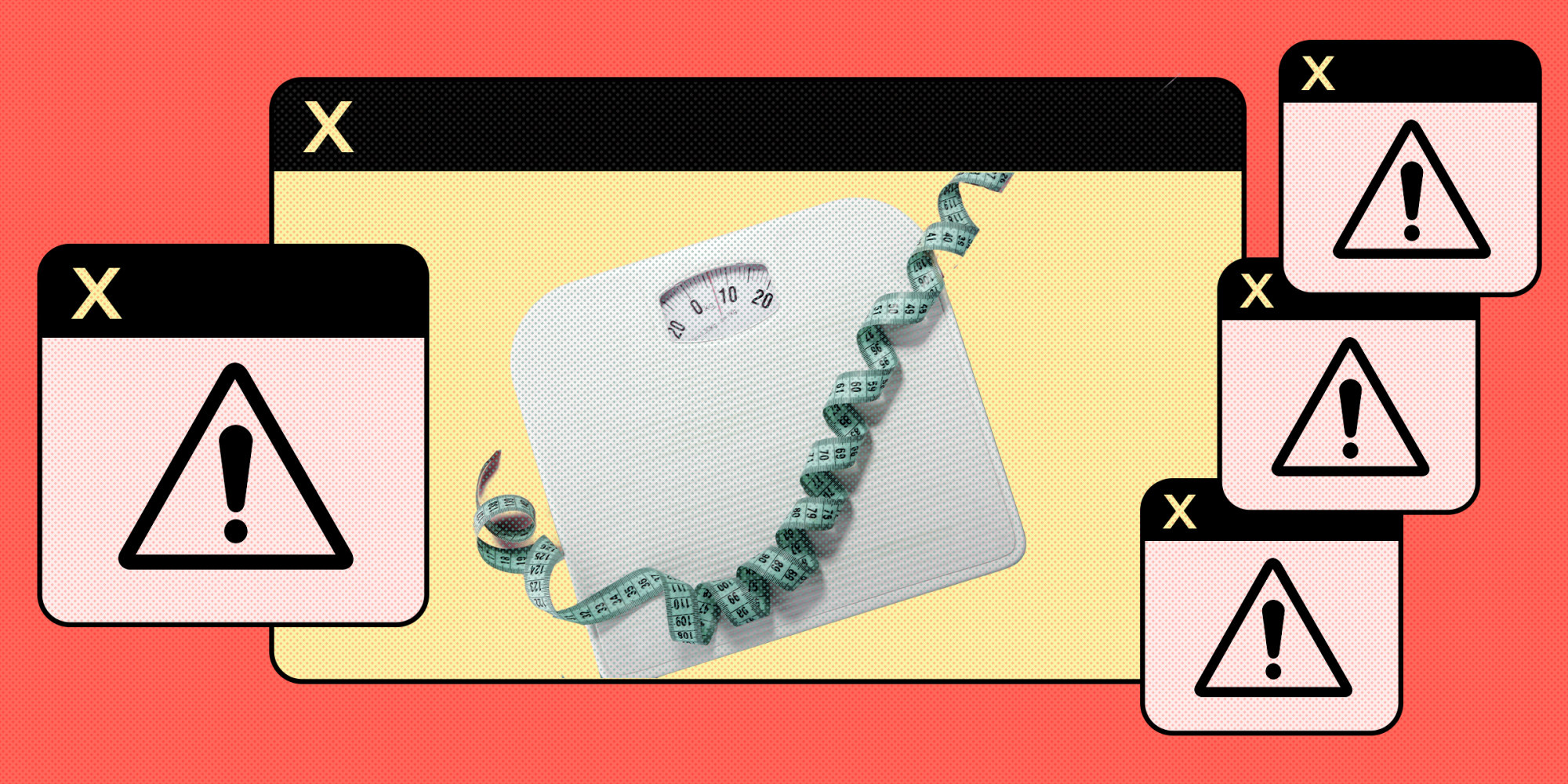Pinterest is Banning Weight Loss Ads. Health Experts Say It’s a ‘Positive Step’
Pinterest has become the first major social media platform to ban weight loss advertisements on the site.
The policy covers advertisements that include testimonials about weight loss or weight loss products, as well as ads that reference body mass index (BMI) or similar metrics, and more. According to the company, ads promoting healthy lifestyles, habits or fitness services and products will still be allowed, so long as they do not "focus on weight loss."

Pinterest said in a statement shared on July 1 that they were the "only major platform to prohibit all weight loss ads."
"It's an expansion of our ad policies that have long prohibited body shaming and dangerous weight loss products or claims," the statement continued. Since 2015, Pinterest has blocked searches related to pro-eating disorder content. The site also already has rules banning ads that promote weight loss pills or before-and-after imagery.
Dr. Deborah Glasofer, a clinical psychologist at the Columbia Center for Eating Disorders in New York City, said that the further restrictions on weight loss ads was a positive step for the digital pinboard site, especially when it comes to accommodating users who may have or be in recovery from an eating disorder.
"That kind of imagery is particularly unhelpful, especially things that are images of bodies that send a message that thin is ideal versus the real bodies that most of us live in," Glasofer said. "Anything that is pushing a lot of rigid rules around eating is especially unhelpful to someone with an eating disorder."
How do weight loss advertisements affect people?
Registered dietitian Samantha Cassetty said that the emphasis on a "conventionally fit and thin body" in weight loss advertisements can negatively change people's perceptions of nutrition and health.
"When you consistently see pictures of one body type, which may be unrealistic for you, it can promote body dissatisfaction and the pursuit of thinness," Cassetty said.
Glasofer agreed that these advertisements can lead to negative self-perception.
"There's certainly research showing that for people who are vulnerable to eating disorders, and even people without eating disorders, that there are certain images, particularly things that show up on social media, that can be very impactful in how they feel about themselves, how they feel about their bodies, or how important it feels to change their shape or their ways," Glasofer said. "I do think that these ads can have a negative impact on people who have a current, past or vulnerability to eating disorders."
Dr. Rebecca Berry, a child and adolescent psychologist at the Child Study Center at Hassenfeld Children’s Hospital at NYU Langone Health, said that this effect is especially pronounced among teenagers, who may spend more time on social media and could be more vulnerable to negative self-image.
"When an individual sees these weight loss ads or even sees, say, a TikTok video of someone who is like 'This is what I eat, this is what I weigh,' it can lead to a discrepancy between a person's actual self and their ideal self, which can lead to what we call dejection-related emotions of disappointment or dissatisfaction or body image dissatisfaction specifically," Berry said. "... It's that sense of 'I'm not good enough,' and it comes from exposure to this particular type of media."
Cassetty pointed out that the testimonials in weight loss advertising can give people a false impression of how well a certain diet or eating plan may work for them.
"This anecdotal evidence doesn't tell you anything," Cassetty said. "Also, a testimonial doesn’t tell you what else the person was doing to get the results discussed. So it may be that they’re touting a product, but they changed their eating, exercise, and sleep routines. And testimonials don’t indicate how safe or healthy a program is."
How can people be more health literate about weight loss content?
If you are looking for information about weight loss, Glasofer recommends starting by speaking with your own doctor or another medical expert who is familiar with your personal background and circumstances.
"That might be a primary care physician, it might be speaking to a dietitian, but somebody who can really go through the individual's eating and weight history to understand what represents psychological and physical health for that individual," Glasofer said.
When it comes to social media, Cassetty recommends looking at credible sources, like information from health organizations such as the American Heart Association or the Academy for Nutrition and Dietetics, or at posts written by registered dietitians.
"Really, the key is to seek information from people who are qualified to give you advice," Cassetty said. "Anyone can call themselves a nutritionist or health coach, but you need to make sure you’re getting health and nutrition information from someone who has credentials ... One study found that just one in nine bloggers presented evidence-based weight loss information, so this is really crucial."
Berry said that parents can help their children maintain a healthy attitude around weight and body image by avoiding commenting on body shapes and highlighting how a "healthy" appearance can vary from person to person.
Cassetty said that people should avoid anyone who recommends a diet or eating plan that focuses on restricting numerous food groups, and be suspicious of information that "ignores the complexity of weight management."
"Eating is only one part of the equation. If someone is positioning weight management as an eat less/exercise more equation, that’s a sign they’re ignoring the full picture," Cassetty said. "Also, if an influencer or plan promises weight loss or recommends a goal weight, run in the opposite direction. Your body will settle where it’s meant to settle, and no one can guarantee that you will lose weight."
The post Pinterest is banning weight loss ads. Health experts say it’s a ‘positive step’ appeared first on Today
